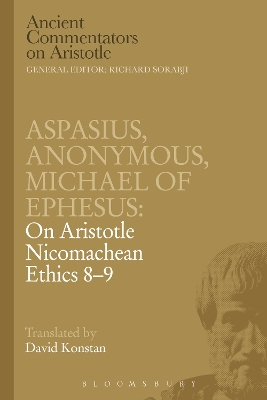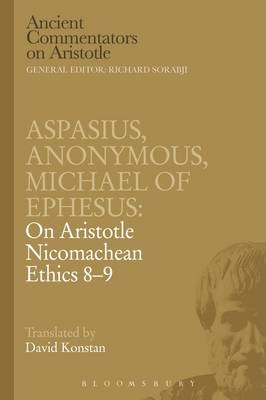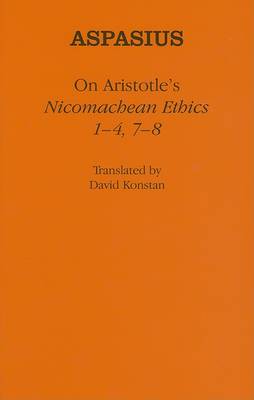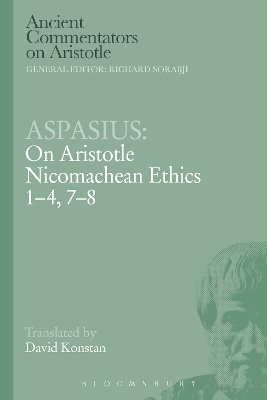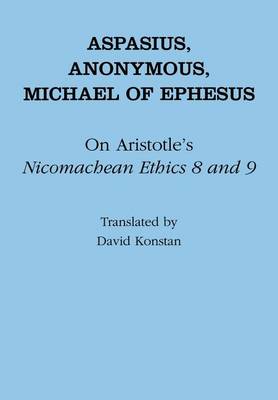Ancient Commentators on Aristotle
5 total works
Aspasius, Michael of Ephesus, Anonymous: On Aristotle Nicomachean Ethics 8-9
by Michael and Aspasius
Published 1 January 2014
Aristotle devotes books 8-9 of the Nicomachean Ethics to friendship, distinguishing three kinds: a primary kind motivated by the other's character; and other kinds motivated by utility or pleasure. He takes up Plato's idea that one knows oneself better as reflected in another's eyes, as providing one of the benefits of friendship, and he also sees true friendship as modelled on true self-love. He further compares friendship with justice, and illustrates the ubiquity of friendship by referring to the way in which we help wayfarers as if they were kin (oikeion), a word he takes from Plato's discussion of love. In many of these respects he probably influenced the Stoic theory of justice as based on the natural kinship (oikeiotes) one feels initially for oneself at birth and, eventually, for lost wayfarers. Of the three commentaries translated here, that by the second-century AD Aristotelian Aspasius is the earliest extant commentary on Aristotle; the second is by Michael of Ephesus in the twelfth century; the third is of unknown date and authorship. Aspasius worries whether there is only one kind of friendship with a single definition.But he plumps for a verdict not given by Aristotle, that the primary kind of friendship serves as a focal point for defining the other two. Aspasius picks up connections with his Stoic contemporaries. Michael cites Christians and draws from Neoplatonists the idea that there is a self-aware part of the soul, and that Aristotle saw individuals as bundles of properties.
Aspasius, Michael of Ephesus, Anonymus: On Aristotle Nicomachean Ethics 8-9
by Michael and Aspasius
Published 10 January 2013
Aspasius' commentary on the "Nicomachean Ethics", of which six books have come down to us, is the oldest surviving Greek commentary on any of Aristotle's works, dating to the middle of the second century AD. It offers precious insight into the thinking and pedagogical methods of the Peripatetic school in the early Roman Empire, and provides illuminating discussions of numerous technical points in Aristotle's treatise, along with valuable excursuses on such topics as the nature of the emotions. This is the first complete translation of Aspasius' work in any modern language.
Until the launch of this series nearly twenty years ago, the 15,000 volumes of the ancient Greek commentators on Aristotle, written mainly between 200 and 600 AD, constituted the largest corpus of extant Greek philosophical writings not translated into English or other European languages. Aspasius' commentary on the Nicomachean Ethics, of which six books have come down to us, is the oldest surviving Greek commentary on any of Aristotle's works, dating to the middle of the second century AD. It offers precious insight into the thinking and pedagogical methods of the Peripatetic school in the early Roman Empire, and provides illuminating discussions of numerous technical points in Aristotle's treatise, along with valuable excursuses on such topics as the nature of the emotions. This is the first complete translation of Aspasius' work in any modern language.
On Aristotle's "Nicomachean Ethics 8 and 9"
by Aspasius and Michael of Ephesus
Published 25 October 2001
